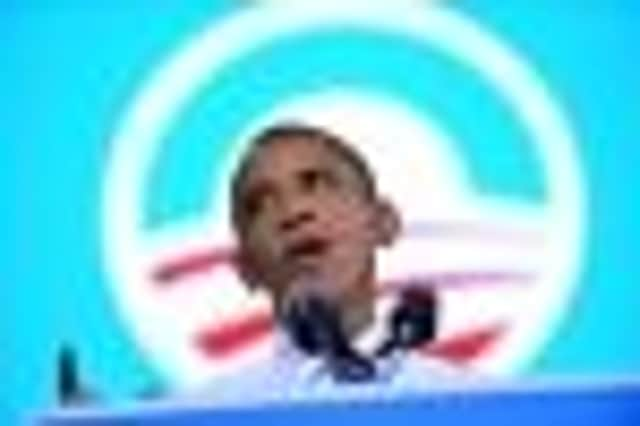Juliet Dunlop: TV debate closes gap between contenders


Pots of money help, of course, but candidates need something extra to keep them going; a made-in-America, star-spangled potion marked “charisma”. A quick glug and anything is possible, so long as you have a full head of hair, the ability to shoot straight (guns or hoops) and a few, appealing policies. You must talk the talk and walk the walk. Put simply, candidates who fail to get the presidential packaging right are casualties, not contenders.
So where better to sell, cajole and convince than in the living rooms of voters? Live televised debates play a crucial role in US elections. While brains, speaking a foreign language and owning a passport are still viewed with suspicion in some quarters, doubt can still be erased from the minds of millions with a polished turn on stage.
Advertisement
Hide AdAdvertisement
Hide AdOr can it? The pollsters claim the TV debates don’t win elections, but they sure as hell can lose them.
Now while the importance of debates may be exaggerated, mistakes can be fatal: a sweaty Richard Nixon in 1960 looked shifty and uncomfortable next to John F Kennedy; Gerald Ford blew it in 1976 after denying the Soviet domination of Eastern Europe; and in 2000 Al Gore made George W Bush look like a regular, blue-collar guy who deserved a break.
Mitt Romney, trailing the president after a bad couple of weeks on the campaign trail, needed to pull off the same trick in this week’s first televised debate.
So, did he? Well, Thursday’s Rocky Mountain showdown certainly promised much. Ready for curtain-up, 60 million Americans tuned in to watch the first of three sparring matches between Obama and his Republican challenger.
This was the moment we had been waiting for, the break-through performance; the fabled “game- changer”. Everything had been leading up to this prime-time slot in Denver. Michelle Obama and Anne Romney had set the scene, the cash had been splashed on negative ads and Clint Eastwood swept under the carpet. All gaffes could be forgiven.
Our date in Denver began politely enough, there was even a little joke at the beginning, but Romney, also known as Mitt the square-jawed Mormon millionaire, had the glassy-eyed stare of a man with a mission.
The respectful aggression we’d been promised wasn’t so respectful – a risky strategy but one that seemed to work for Romney. He landed a succession of blows. He was on the attack, pumped up and ready for action (surprising, given that his beliefs mean caffeine is a no-no).
Obama, who’d been holed up in a bunker being tutored by failed presidential candidate John Kerry, simply grew weary. His calm, measured approach looked cool and aloof. He was tired, America was tired of him. All Romney had to do was hammer home the message he cared, he was normal and he could help. The words mattered, but how Romney projected himself mattered more. The election certainly now seems closer than ever.
Advertisement
Hide AdAdvertisement
Hide AdOf course, we have our own complicated history with TV debates. Gordon Brown agreed to a televised leaders’ debate at the last general election. The words “I agree with Nick” must still be ringing in his ears. Although, two years on, no-one it seems agrees with Nick any more. And while audiences may have responded to the Lib Dem leader and his slick TV turn, in the end it didn’t really translate into votes.
In Scotland, leaders’ debates are different again – the audience calls the shots. Our debates may lack the air-brushed razzle-dazzle of the American clashes, but they’re certainly lively.
Perhaps Mitt Romney was watching. It certainly looks as though he’s closing the gap with Obama after last night’s duel in Denver. He may not have landed any knock-out blows but he’s certainly back in the ring. Maybe TV debates really can re-invigorate an ailing campaign.